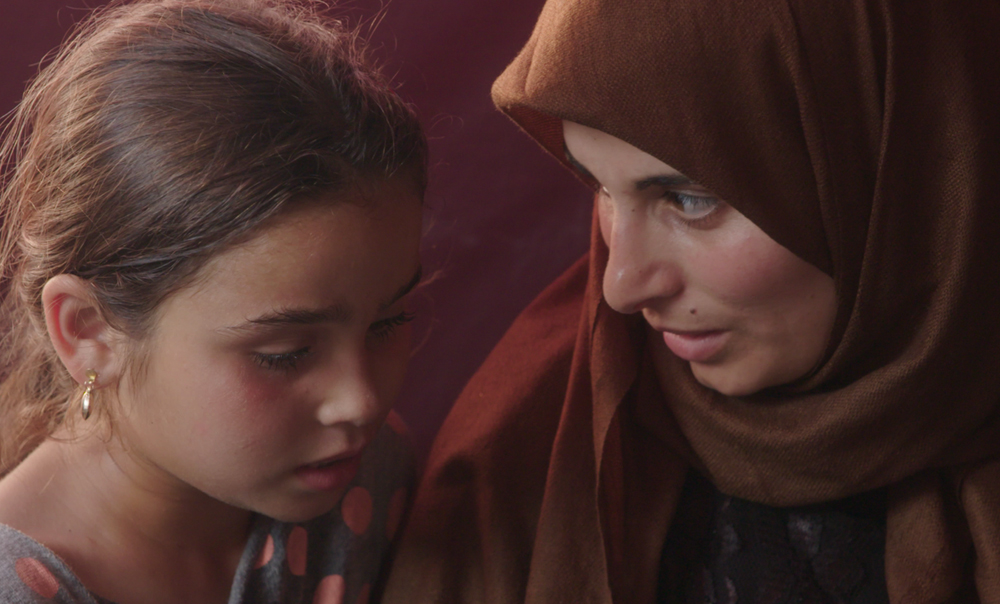There’s only a fleeting glimpse of the ongoing civil war in Syria in “Simple as Water,” but you feel its effects in every frame of Megan Mylan’s extraordinary film, tracking all that it has taken away from those who left the country with their own lives but in many cases, little else. Remarkably, although sadness is certainly there, what is primarily depicted is strength when if any one of her subjects were to completely give themselves over to the tragedies that have befallen them, they likely wouldn’t be able to carry on.
Told in vignettes and a marvel of editing, “Simple as Water” often leads with the stability that the Syrian refugees at its center have created for themselves and pulls back to reveal the piece of themselves that they try desperately to retrieve. Opening in Greece where Yasmin, the mother of four young children, lives in a tent and tries to reconnect with her husband who is in the process of seeking asylum in Germany, the film criss-crosses the globe to show the families torn apart by the war, all unhappy to have been forced out of their home country in the first place.
While Yasmin gets caught in a bureaucratic nightmare, having to leave her children in the care of others in the camp as she works things out with the German Embassy, Mylan visits Samra, another mother in Turkey who is attempting to get her five kids into an orphanage so she is freed up to work after her husband was arrested in Syria, never to be seen again. There is also Omar, who has found a job as an appliance delivery man in Pennsylvania to support himself and his younger brother, who was badly injured before leaving, though it is uncertain whether their application for asylum will go through, and Diaa, the lone main subject of the film to stick it out in Syria, though she spends her days making calls from her iPad, trying to hunt down any leads on her son Mohammed, who disappeared without a trace.
Although its clear the burden of uncertainty weighs heavily on each of them as well as a deep sense of loss, “Simple as Water” honors the fact that they feel no choice but to move forward with their lives, perhaps occasionally watching old videos saved on their mobile devices to remember what was, but dealing with the here and now with as brave a face as they can put on. Their circumstances are tragic, but Mylan comes by any number of the film’s heartbreaking moments honestly and in following her various subjects through the processes and organizations set up to provide them with aid, the reality is both heartening when people try their best to help and devastating when it’s obvious no system could ever be set up to deal with the unique complexities of each individual case or the emotions involved. The fact that “Simple as Water” is presented in separate sections is testament enough to what’s been broken, but just as its subjects resolve to pick up the pieces, there’s immense power in the experience it assembles.
“Simple as Water” does not yet have U.S. distribution.




